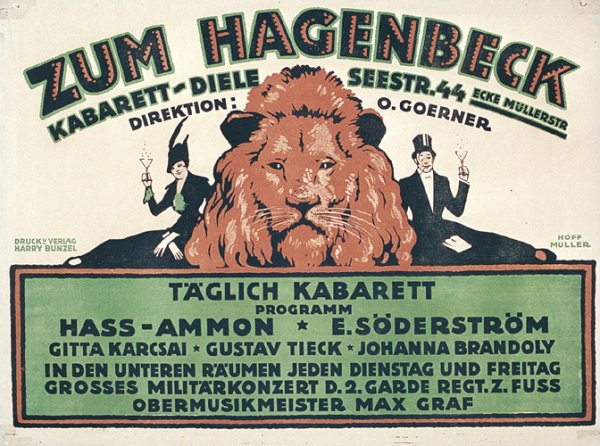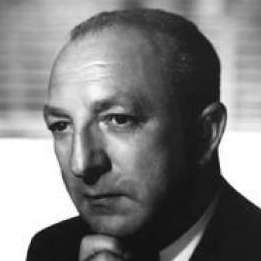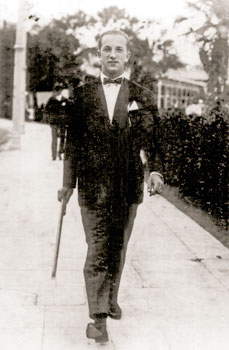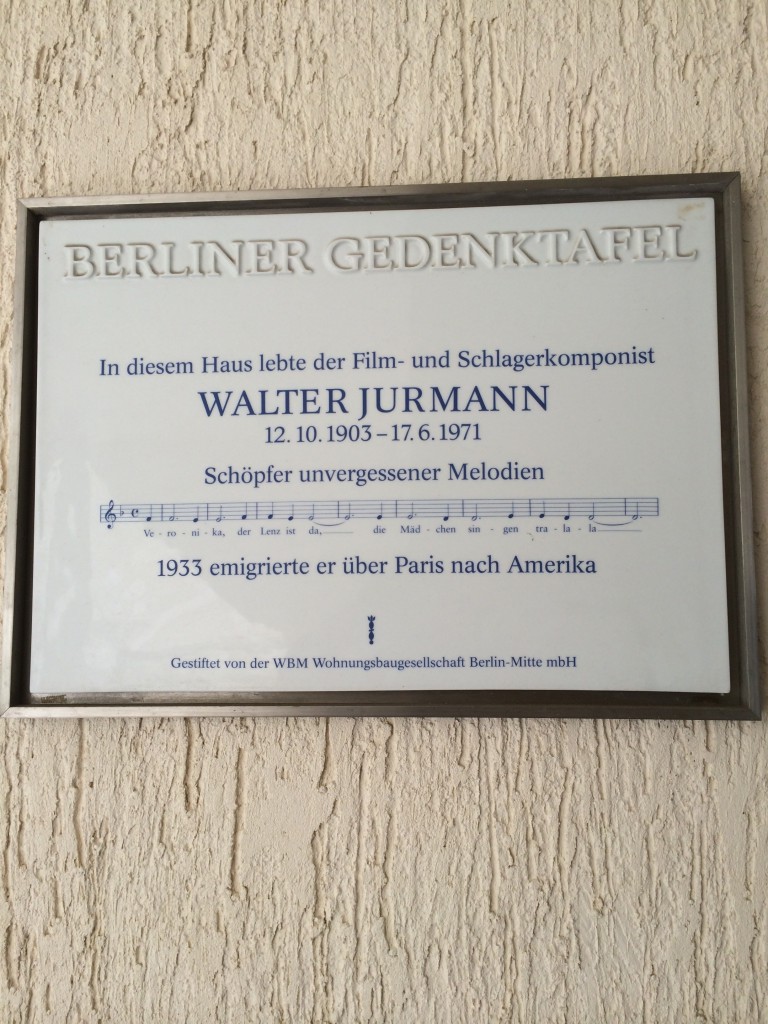

Walter Jurmann
Austrian-born musician and songwriter Walter Jurmann was drawn to Berlin at the height of the Weimar era. He immediately found both a home in the ultra-modern new Erich Mendelsohn housing development on the Ku’Damm and work playing the piano in the bar at the luxurious Eden Hotel in Budapester Straße. The Eden Bar was one of THE places to see and be seen in and around the Ku’Damm. Indeed, fellow-Austrian and soon to be world-famous film-director Billy Wilder also made a living at The Eden as a ‘Taxi-Dancer’ around the same time.

(Pic: Jurmann.org)
The talents of Walter Jurmann and his writing partner Fritz Rotter soon came to the attention of the recording label Ultraphon. wThey were offered a contract and began writing hit after hit for artists, orchestras and the cabarets and revue theatres of the Ku’damm, and beyond.
Their most famous song of the 1920s was Veronika, der Lenz its da which was a hit for the all-male ensemble ‘The Comedian Harmonists’, and remains an evergreen ‘Schlager’ classic to this day.
With the advent of sound movies, Jurmann moved into writing film scores. The 1931 hit film Ihre Majestät die Liebe featured five of his songs performed by some of the most famous cabaret stars of the era, and he was soon inundated with commissions. His tunes were so memorable and recognisable that it was said they could be heard being hummed on the street the morning after a film had opened.
Like so many artists of his generation he fled Berlin in 1933, along with his new writing partner Bronislaw Kaper. They headed for Paris where he continued to write songs and scores for movies, adapting his work into a more French ‘Chanson’ style.
In 1934, Louis B. Mayer visited Paris to search out Jurmann and Kaper, and offered them a seven-year contact with MGM. By October of that year they were both in the U.S.
His success continued in Hollywood, where he contributed to films such as Mutiny On The Bounty, A Day At The Races, and Presenting Lily Marrs starring Judy Garland. He continued to write and compose for both the stage and screen throughout the 1940’s and 50’s before taking semi-retirement, and marrying the fashion-designer Yvonne Jellinek, in 1953.
He died from a heart attack in 1971, aged 67, and is interred at the Hollywood Forever Cemetery in California.

